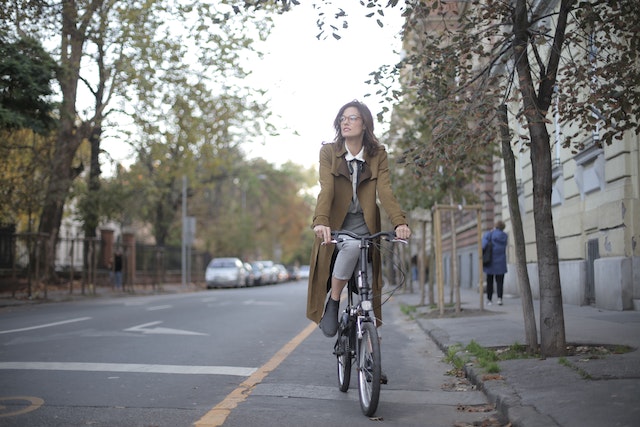
If you’re committed to preserving the environment, then you might have made a few small lifestyle changes. Avoiding single-use plastics, turning down the thermostat, and swapping to LED light bulbs – they can all have an impact on your overall carbon footprint.
That said, it’s fair to say that certain activities have an outsized impact on the natural world. Switching off the lights for an hour, for example, uses the same amount of energy as running your boiler for a few seconds.
Transport is a notorious source of carbon emissions, accounting for around a sixth of global emissions.
In industrialised countries like the UK, the figure is much higher. Around three-quarters of emissions from transport come from cars.
Any changes we can make to the way we get from place to place, therefore, might have a much more significant ecological impact than swapping out your plastic shopping bags.
How does our daily commute harms the environment?
In the UK, the average petrol-powered car will release around 180g of CO2 per kilometre travelled. While this figure will vary according to the age and condition of your car, it’s still something that will compound over time. Suppose you’re travelling two kilometres to work every day.
That would mean around 96kg of CO2 over a year – which is more than most people weigh! And that’s before we take leisure trips into account.
According to a recent government travel survey, most short trips of between one and two miles are made using a car.
So, what changes can we make to improve the situation? The good news is that there are a few simple tweaks.
Cycle or Walk

In many cases, it might be possible to make your commute without resorting to road transport at all. You can simply set out a little early and walk there. The health benefits of walking are considerable, and so you might even be able to cut out the gym membership. So, by making this switch, you’ll be greener, richer, and fitter.
Of course, walking isn’t always practical because of the distances involved. If your commute is just a little longer, you might switch to a bicycle and many cities now offer cycle hire schemes for normal and e-bikes.
If your workplace provides the facilities for you to get showered and changed onsite, then so much the better.
Try Public Transport

While trains and buses do still produce emissions, they’re far greener than the average car on a per-passenger basis. If you can use public transport, therefore, you should. Not only will you reduce your emissions, but you’ll also free up more space in your local city centre by reducing the number of cars on the road.
You can apply the principles of public transport on a smaller scale by setting up a carpooling scheme at work. The idea here is simple: by sharing a ride with three or four colleagues, you’ll slash your overall emissions – and perhaps even get some social benefit in the process.
You can also use car-sharing apps listed in our green apps guide.
Go electric

The electric car is just on the cusp of becoming viable for many – and for some, it’s already arrived. Electric cars are greener and more affordable to run than their internal-combustion-engine powered counterparts.
That’s even after you account for things like lithium mining, battery failures and inefficiencies in the electrical grid. To get the best from your electric vehicle, you’ll want to investigate your local charging infrastructure and look into specialised electric car insurance.
Just be aware that, however green an electric car might be, it’ll never be quite as green as walking. So, you should consider this a measure of last resort.
![]()
Author Profile

- Eco Warrior by day, Eco Blogger by night trying to get the eco balance right.
Latest entries
 Green Home GuidesApril 17, 2025How Heat Pumps Help Cut Household Carbon Emissions
Green Home GuidesApril 17, 2025How Heat Pumps Help Cut Household Carbon Emissions EnvironmentApril 17, 20256 Benefits of Wall Cladding for Eco-Friendly Renovations
EnvironmentApril 17, 20256 Benefits of Wall Cladding for Eco-Friendly Renovations EnvironmentMarch 31, 20255 Sustainable Materials for Building Your Dream Eco-Friendly Pergola
EnvironmentMarch 31, 20255 Sustainable Materials for Building Your Dream Eco-Friendly Pergola Best practicesMarch 25, 202510 Green Tips to Live a More Sustainable Lifestyle
Best practicesMarch 25, 202510 Green Tips to Live a More Sustainable Lifestyle





Leave a Reply
You must be logged in to post a comment.